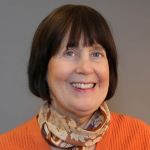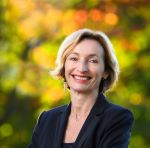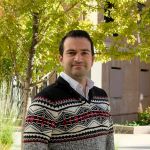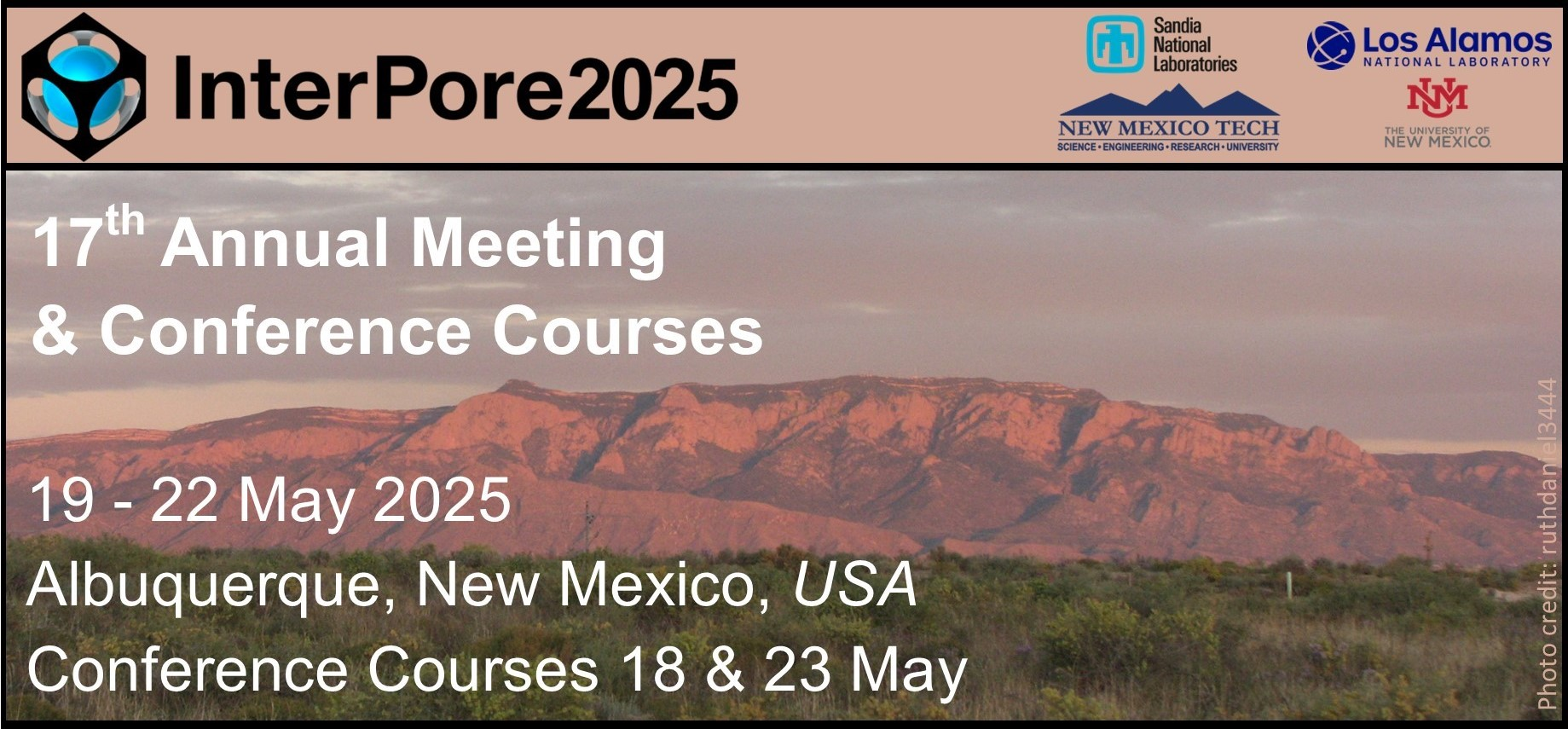Title:
Land Disposal of PFAS-Contaminated Soils: A Mathematical Modeling Framework for Site-Specific Risk Assessment Abstract:
Per- and polyfluoroalkyl substances (PFAS), a class of some 12,000 chemicals, are recognized as contaminants of emerging concern by the US Environmental Protection Agency, which has recently promulgated stringent (part per trillion) nationwide drinking water standards for a few of the most prevalent of these compounds. Historically, PFAS were essential ingredients of aqueous film forming foams (AFFFs), and their use for fire mitigation has led to widespread PFAS contamination of soils and groundwater at airports, fire stations, and military bases across the United States. This presentation provides an overview of recent work designed to formulate and demonstrate a mathematical modeling approach that will support the development of site-specific screening levels for PFAS-contaminated soil disposal. Mathematical modeling of PFAS transport in soils presents some unique challenges, due to the amphiphilic properties of PFAS which facilitate air-water interfacial accumulation that can affect both water flow and contaminant retention in the soil profile. The laboratory-validated multiphase flow and transport model used in this study incorporates: (a) natural recharge, (b) PFAS leaching from contaminated soils, (c) PFAS sorption/desorption in the underlying soil profile, (d) competitive PFAS accumulation at air-water interfaces, and (e) vertical advective and dispersive fluxes of constituents through the soil to the underlying groundwater. The site selected for model demonstration is a US military base in a semi-arid region subject to long periods of cold climate conditions, necessitating the modeling of the effects of snow accumulation and snowmelt on recharge. PFAS-impacted soil, attributed to the historic use of AFFFs, was emplaced in a lined stock-pile and sampled to characterize hydrogeochemical properties and quantify contamination levels. Soil borings of the native soil within the vadose zone underlying the stockpile were also retrieved for characterization. To quantify PFAS desorption kinetics and sorption isotherms for the PFAS-contaminated and underlying soils, a series of batch experiments was undertaken. Column experiments were also conducted to investigate PFAS leaching and subsequent transport within the underlying native soil. Data derived from these experiments were then used to parameterize the simulator for site-specific application. Results of laboratory analyses revealed detectable concentrations of five EPA-regulated PFAS (PFOA, PFNA, PFBS, PFHxS, and PFOS) and provided information to characterize sorption/desorption and interfacial accumulation behavior. A suite of simulations was conducted for alternative site scenarios, encompassing varying contamination levels, sorption characteristics, hydraulic soil properties, and projected climatic conditions over a one-hundred-year time frame. These simulations provide site-specific estimates of projected PFAS arrival times, concentrations, and mass fluxes at the water table, as well as their ranges of uncertainty. Model-predicted PFAS fluxes are now being employed to explore the potential implications of contaminated soil leaching on groundwater quality and risk to human and ecological receptors. Contributing authors: U. Garza-Rubalcava1, J. Christ2, L. Guevara1, J. Peck1, M. Woodcock1, C. Pisarri3, L. Zimnawoda4, K. Pennell1 1Brown University, Providence, RI, 2S&B Christ Consulting LLC, Las Vegas, NV, 3EQMS-BEM JV, Anchorage, AK, 4Formerly BEM, currently Cherokee Federal Bio:
Linda M. Abriola is the Joan Wernig and E. Paul Sorensen Professor of Engineering at Brown University. Prior to joining Brown she was the inaugural dean of the Tufts University School of Engineering. An expert in the multiphase transport, fate, and recovery/destruction of contaminants in the subsurface, Professor Abriola is the author of more than 180 refereed publications. She has been the recipient of numerous awards, including the National Ground Water Association’s Distinguished Darcy Lectureship (1996), the Strategic Environmental Research and Development Program Project of the Year Award in Remediation (2006, 2012), appointment as a U.S. Science Envoy (2016), and the Prince Sultan Bin Abdulaziz International Water Prize for Ground Water (2022). Dr. Abriola is a member of both the American Academy of Arts and Sciences and the US National Academy of Engineering and a Fellow of the American Geophysical Union and the American Association for the Advancement of Science. She received her Ph.D. and M.S degrees from Princeton University and a B.S. degree from Drexel University, all in Civil Engineering. |
Title:
Safe and Efficient CO2 Sequestration in Subsurface Aquifers: Viscosity Enhancement, Physics of Displacement, and Numerical Modeling Abstract:
CO2 has gas like viscosity and liquid-like density. Injection in the subsurface results in wide distribution and possibility of leakage. Direct visocosification of CO2 at low concentration requires engineering of new molecules that can be effective in the subsurface conditions. The phase behavior description of water/brine and CO2 is still an unresolved issue. Advances are being made for accurate and efficient phase behavior description. Phase behavior computations have been recently advanced for large scale simulations.
The physics of flow of water/brine and CO2 has complexities that have not been recognized until recently. In most publications, the capillary pressure is assumed to be zero at the core outlet in lab scale. Recent X-ray CT scanning shows the boundary conditions even in Lab scale may be revisited.
The most challenging problem has been large scale flow simulations. When CO2 dissolves in water/brin, there is density increase. Gravity fingers develop from adverse density effects. Most large-scale flow simulators cannot capture the gravity fingering properly. The domain discretization by 3D fully unstructured gridding, and higher-order methods have been recently integrated in dynamic adaptive gridding.
The presentation combines recent advances in various aspects of the problem leading to large scale modeling of CO2 sequestration in subsurface aquifers.
Bio:
Professor Abbas Firoozabadi is a Distinguished Research Professor at the Department of Chemical and Biomolecular Engineering at Rice University, Houston, TX, and Director of Reservoir Engineering Research Institute (RERI) in Palo Alo, CA. His published work centers on multi-component equilibrium, non-equilibrium, kinetics of new phase formation, and higher-order numerical simulations of subsurface flows. His current work focuses on molecular engineering and fracturing of rocks in relation to subsurface efficient energy production, large scale numerical simulation of CO2 sequestration in the subsurface, and stewardship of the environment. Most of his current research focuses on widespread use of CO2 in the subsurface. He is expanding his research into hydrogen production and storage in the subsurface. He has authored two books on thermodynamics of hydrocarbon energy production published by McGraw-Hill and is author and co-author of some 270 Journal papers.
Professor Firoozabadi has received four of the major awards of the Society of Petroleum Engineers (SPE) including the Anthony Lucas Gold Medal. He is a member of the US National Academy of Engineering (NAE), and international member of the Chinese National Academy of Engineering. |
Title:
Flow architectures in porous media, designing for efficiency Abstract:
Flow systems can evolve toward greater efficiency by adapting, or ‘morphing’, their configuration to decrease flow resistance. Flow channels function in concert with the structures around them, as a combination of long and fast flows along the channels, with short and slow flows through the surrounding medium. The ability to predict flow patterns enables engineers to propose flow designs for heat, mass, and fluid flows. Our previous work theorized the deterministic nature of morphing and showed how to obtain efficient flow configurations for combined and sometimes competing objectives. In this talk we will consider applications ranging from the control of ionic species transport, energy storage based on thermochemical reactions and the design of capillary networks for the cooling of high-power electronic components. Bio:
Sylvie Lorente is the William M. Brown ’84, ’87 Endowed Chair in Mechanical Engineering at Villanova University, PA, USA, since June 2024. She is the Associate Dean for Research & Innovation in the College of Engineering. She is Professor (Exceptional Class) at the National Institute of Applied Sciences (INSA), University of Toulouse, France. Dr. Lorente is also Adjunct Professor at Duke University (USA). She is a member of the Academia of Europaea, and a member of the Scientific Council of the European Research Council. She is editor of the International Communications in Heat and Mass Transfer, and member of several other editorial boards. Sylvie has a passion for flow architectures, and works on thermal design, energy storage, vascularized structures, porous media, biological flow networks, urban design and organizations. Together with her group, she uncovers the engineered and biological hierarchical flow pathways that endow complex systems with efficient properties and behaviors. She is the author of 7 books, 10 book chapters and 220+ peer-reviewed international journal papers. She is listed among the top 2% most cited scientists worldwide. |
Title:
The love story between particle porosity and the biomedical field. Abstract:
Engineering material porosity was initiated to harness their properties in catalysis and separation. Shortly after, adapting porosity to nanotechnology was embraced by the biomedical field: Particle porosity not only can accommodate, concentrate and protect nanocatalysts or nanotherapeutics from small molecule drugs to nucleic acids and proteins, but we have found that they also exhibit intrinsic properties that guide the interaction of the nanomaterials within their biological environment, including cell lipid membrane, uptake, biocompatibility, particle dissolution, but also to some extent their distribution in body organs. In this presentation we will first revise the basics of pore formation within silica matrices, their interaction with therapeutics and selected works by our group in bio- and catalytic applications of porous silica materials. Bio:
Achraf Noureddine is a junior assistant professor of research at the department of chemical and biological engineering at the University of New Mexico. His learning and research journey expands over three continents between Lebanon, France and USA. His research focuses on developing nanomaterials for biomedical applications ranging from cancer to obesity and predictive nanomedicine. An emphasis of his PhD and postdoc research within the groups of Wong Chi Man (ENSCM Montpellier France), Zink (UCLA, USA) and Brinker (UNM,USA) is the development and advancement of mesoporous silica materials mainly for drug delivery purposes but also for catalytic applications. He has over 30 papers, 3 book chapters and 8 patent (issued or filed). His mentorship has yielded over 25 awards for diverse trainees including high school students and teachers as well as undergraduate students. He is member of different societies including the internation sol gel science and technology, biomedical engineering and drug delivery society of Japan. |










